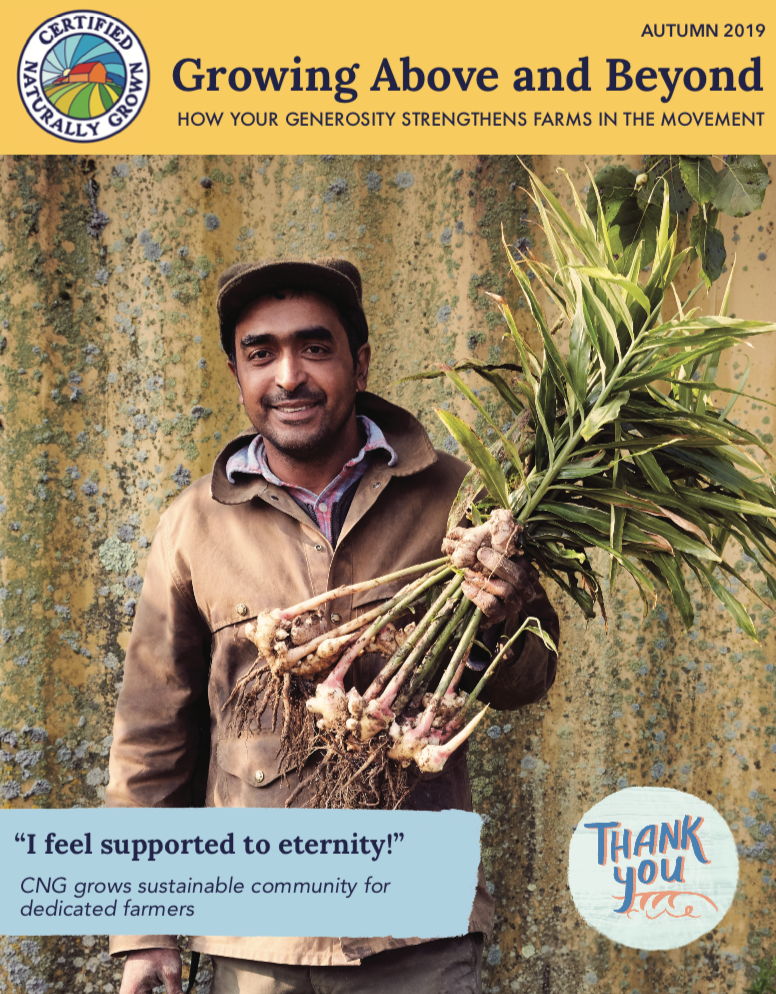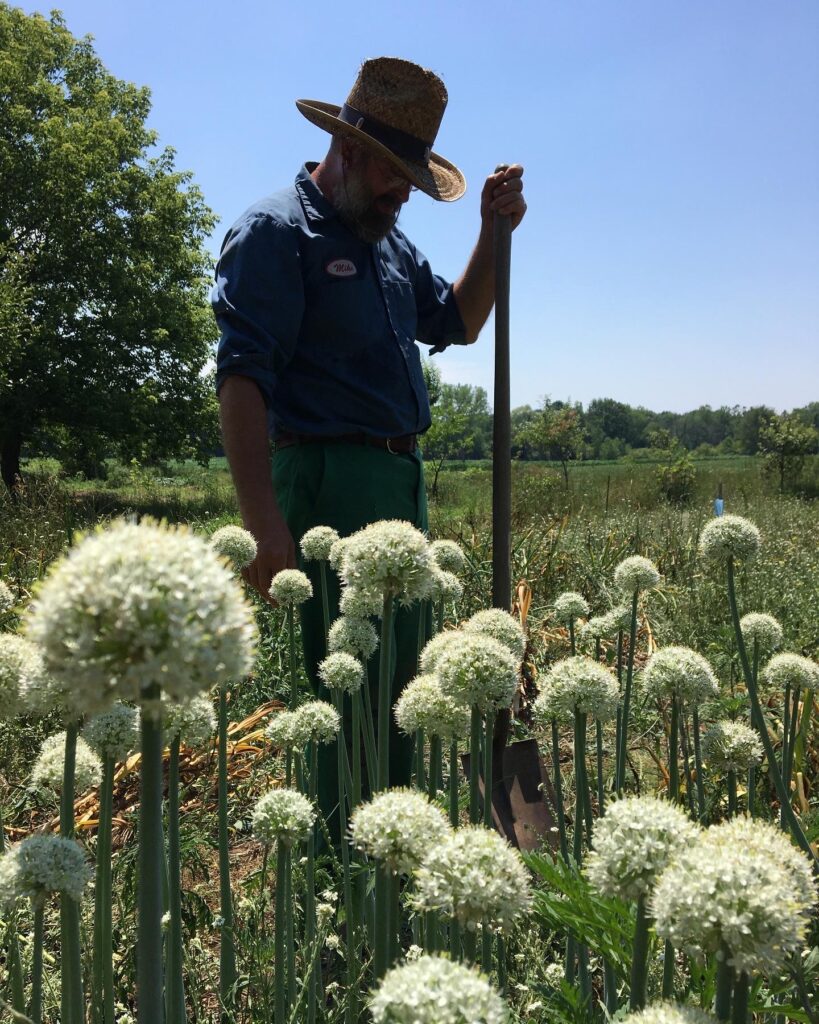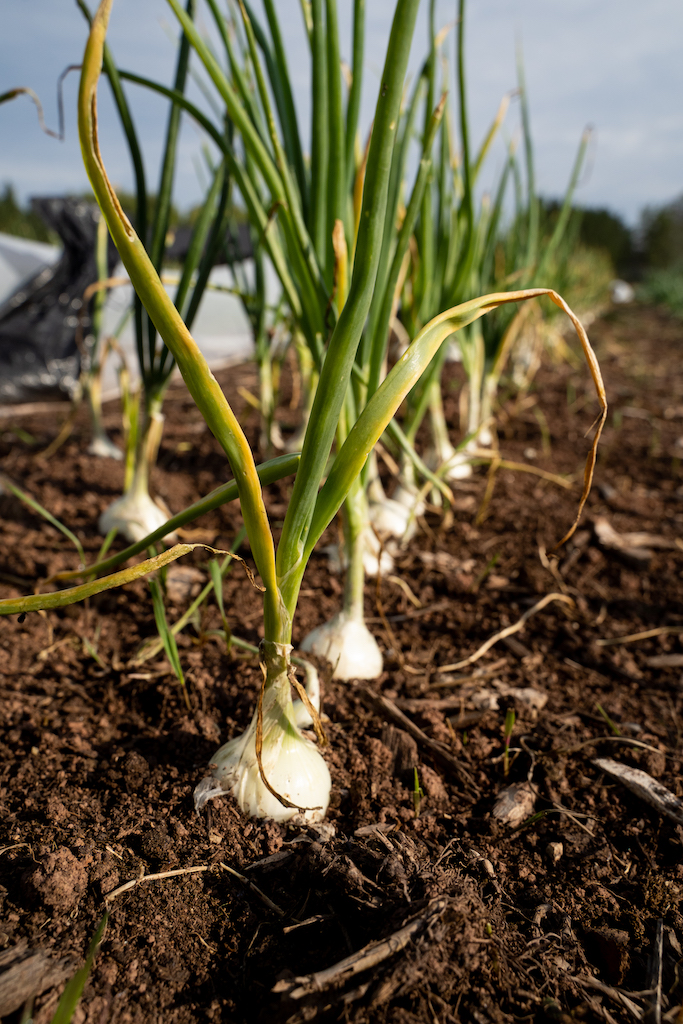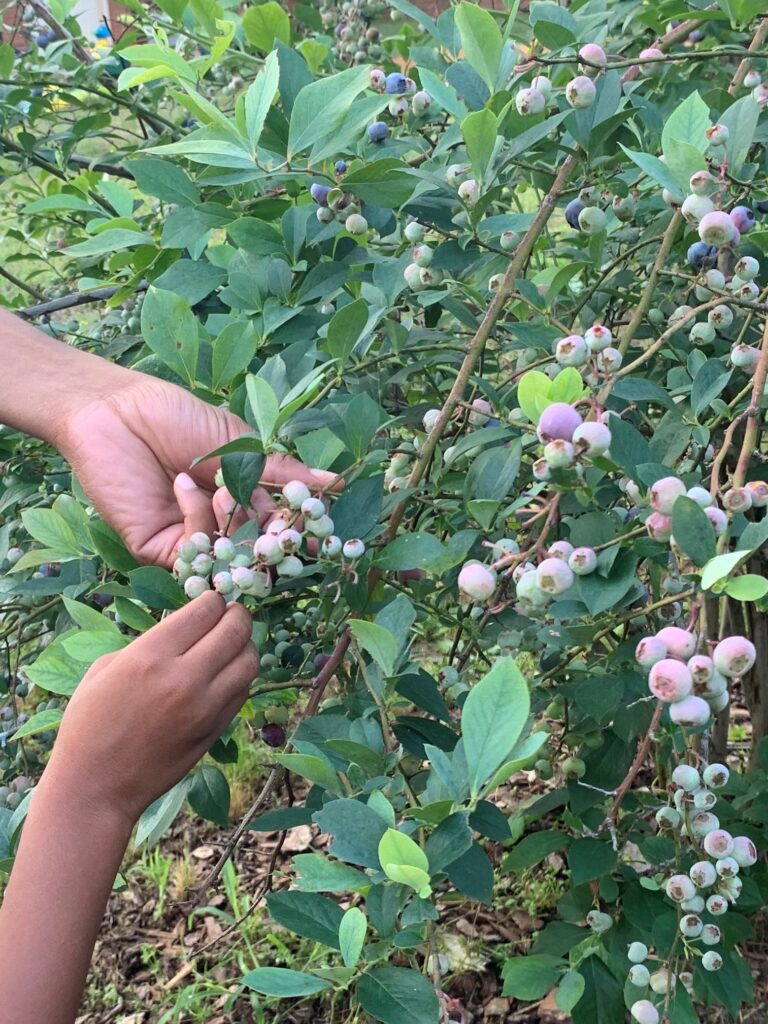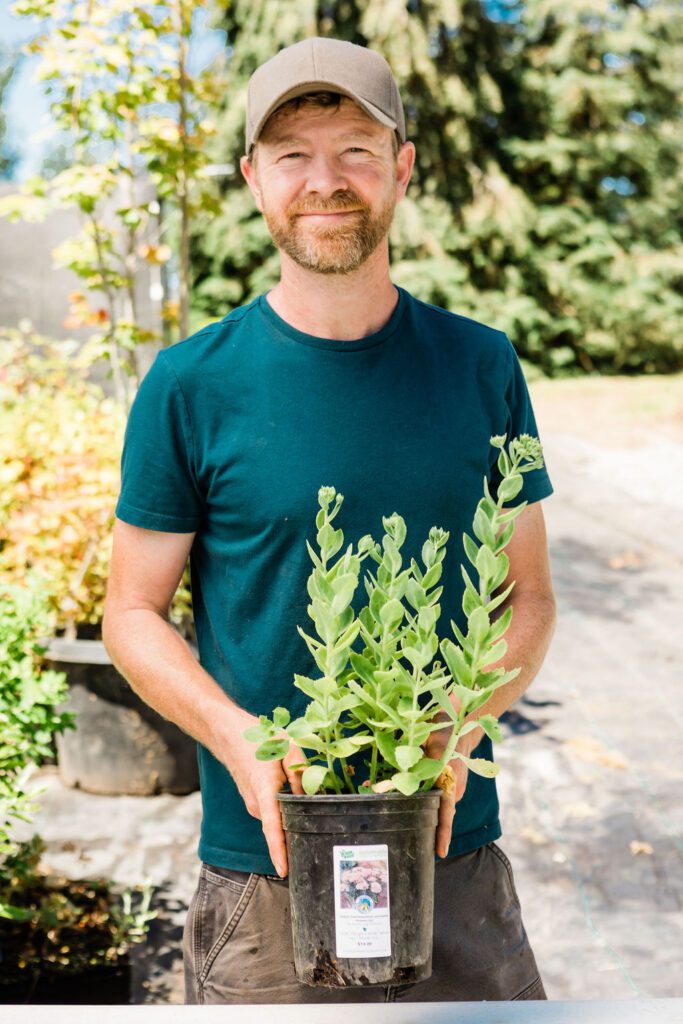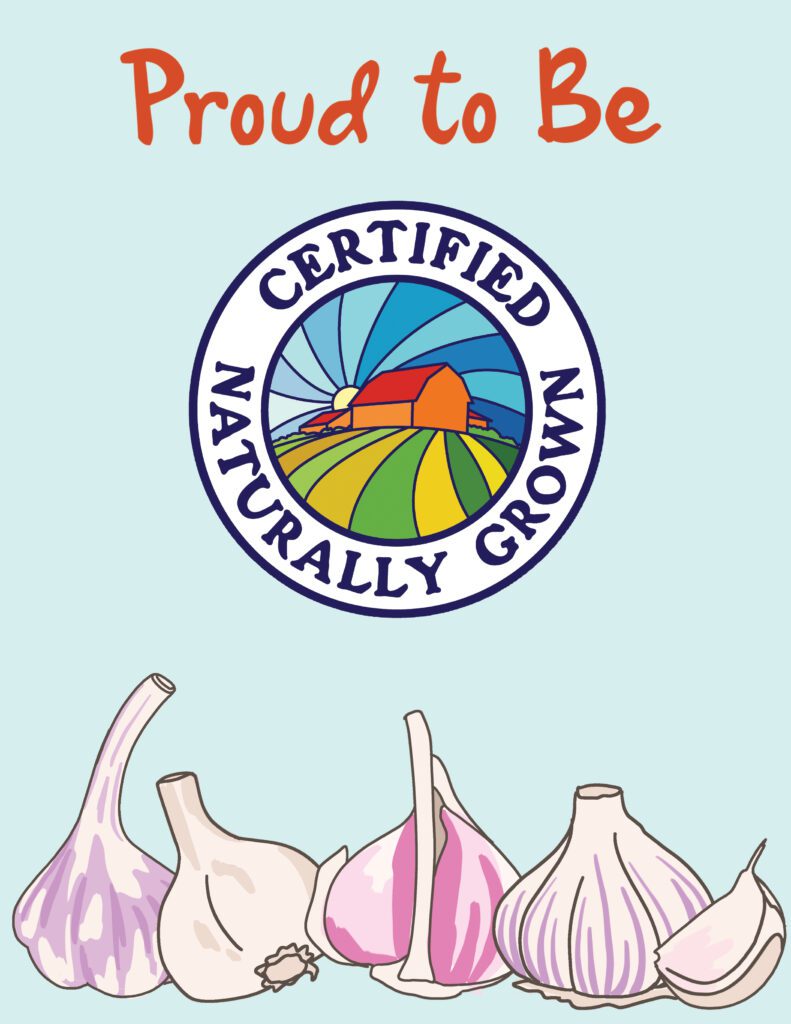Compost is a key input for many CNG farms, helping farmers improve their soil structure, fertility, tilth, organic matter levels, microbiology, and overall health. The benefits are many, but so are the challenges. From understanding CNG’s in-depth compost standards to the myriad issues farmers face when sourcing or making their own compost, farmers have their work cut out for them. Let’s see if we can clear up the standards confusion and highlight some best practices, so that we can ensure that we’re all responsibly able to utilize the organic matter around us to support our soils.
We’ll start with the basics—so what is the difference between compost and manure? Compost is organic material that has been biologically broken down (decayed) into a relatively homogenous, stable soil amendment. It’s essentially the process of creating soil humus. Manure is, well, poop—digested organic material that has not yet decayed or broken down. Aged manure is not compost, it is simply manure that has sat in a pile for a while, off-gassed some ammonia, and begun to partially break down. Compost is not defined by how long material sits, it is based on environmental conditions that the adept composter carefully manages, including: moisture, oxygen, carbon to nitrogen ratio, and temperature.
Farmers have some choices when it comes to applying compost or manure and there are several important considerations for each. Farmers can:
- source compliant compost from a reputable source,
- set up their own compost system,
- or forget about compost and just apply manure.
Whether purchasing finished compost or composting on the farm, folks should pay close attention to the CNG compost rules.
Compost
CNG’s compost standards are based on National Organic Program (NOP), EPA, and FDA guidelines for food safety. If a farmer wants to apply farm-produced compost that includes manure, they’ll need to monitor the initial C:N ratio, take temperature readings, and turn the pile often to ensure that their compost is properly finished. If they can’t meet the compost requirements, the compost must be considered raw manure and applied using the 90/120 “manure rule” or applied only to non-produce crops (hay, landscape, pasture, cover crop, etc.).
CNG Compost standard for manure-based compost
205.203. Soil fertility and crop nutrient management practice standard
(i) established an initial C:N ratio of between 25:1 and 40:1; and
(ii) maintained a temperature of between 131 F and 170 F for 3 days using an in-vessel or static aerated pile system
(iii) maintained a temperature of between 131F and 170F for 15 days using a windrow composting system, during which period, the materials must be turned a minimum of five times.
Lots of CNG farmers definitely struggle to meet these requirements or have alternative compost systems that don’t quite fit into the standards. This is understandable, but for food safety and consumer transparency reasons, CNG (and the NOP) require compliance with these standards. Also, in order to comply with the FSMA Produce Safety Rule farmers need to adhere to the same standards.
Many folks choose to apply their homemade compost using the 90/120 rule or only apply it to their landscape, hay fields, etc. since they struggle to meet the standards. Then they purchase a compliant, finished compost for their produce compost needs.
The other option for on-farm composters is to keep any animal materials out of their compost, so no chicken bedding, bones, manure, etc. (Eggshells are ok). Plant-based compost does not pose a significant food safety risk and is not regulated by the standards.
Farmers sourcing compost need to ensure that the compost they’re buying is properly composted (i.e. following the compost standard) and doesn’t contain prohibited additives or ingredients. Just a phone call or email to your compost supplier should do the trick.
Manure
When applying manure use the 90/120 “manure rule.” Apply (i.e. spread on the field, not left sitting in a pile) manure at least 120 days before harvest for crops on the soil surface (greens, un-trellised tomatoes, strawberries, etc.) and at least 90 days before harvest for crops not in contact with the soil (trellised tomatoes, corn, apples, etc.). When in doubt, go with 120 days.
Applying manure in the fall is often the easiest way to adhere to the 90/120 rule, but can cause some issues if managed improperly. All farmers should have strategies in place to prevent nutrient runoff, but take special care if you live in an area with significant winter precipitation, have a sloping property, or farm near waterways. A great way to combat winter runoff and leaching is to apply your manure (or compost) and then plant a fall cover crop right into it. The cover crop will stabilize the soil and take up any available nutrients vulnerable to runoff and save them for you. Let’s keep our hard-earned nutrients in the soil and out of our waterways!
FAQs
- Does my compost have to contain only manure from organic/naturally grown animals or food scraps from all-organic crops?
- We get this question a lot! In short, No. Compost is compost, providing it does not contain added synthetic fertilizers or other additives. You should, of course, pay attention to what goes into your compost pile, but you don’t need to ensure that every single egg shell, carrot peel or cow pat was from an organic source. Make use of the organic matter you have and let the power of composting do the rest! Just make sure you’re composting properly and pay special attention to hay, straw, and manure that could contain persistent herbicides like clopyralids. These do not break down well, even in the composting process, and can cause serious issues for veggie growers.
- Are biosolids or humanure allowed?
- No. Human waste, treated or not, is prohibited to be used in any way on a CNG farm. Municipal compost does sometimes contain biosolids, so be sure to ask your municipality specifically.
- Is mushroom compost allowed? What about worm compost?
- Absolutely! Both fungi and worms are incredible digesters/composters and do a way better job creating awesome compost than your average backyard pile. These types of compost are so high quality that they’re often used in potting mix and soil blocks.
- Does my purchased compost need to be OMRI-listed?
- No. OMRI-listed compost is awesome, but not widely available in farm-scale amounts, especially in rural areas. Look for suppliers who are paying attention to C:N ratios, turning schedules, temperatures and don’t add any weird stuff like chemical fertilizers. Landscape companies, dairies, chicken houses, and municipalities can all be good places to look for compost. Ask your farmer and gardener friends about their favorite compost sources and try it out before you buy a bunch.
- Can you use too much compost?
- Yes, but it depends. Over-applying compost, especially manure-based compost, can cause phosphorus and sodium accumulation in your soils. Keep an eye on your soil tests and get frequent analyses of your compost too. Many farmers who feel that they’ve been applying too much manure-based compost over time, are switching to high carbon compost, often made from mostly wood chips, straw, leaves, and other brown matter, with little to no manure. It’s good to switch it up. Especially if you’re no-till and rely on heavy annual compost applications, change your sources up. Try some dairy compost one year and some high carbon compost the next. Or take a year off and up your cover crop game. You’ll help stave off unwanted salt accumulation and get to nerd out watching how your soil and crops react to different organic material sources.
Resources
The amount of awesome resources out there on composting is boundless, but here are a few of our faves:
- Compost—You Know That’s Right, blog post from CNG business ally, Seven Springs Farm Supply
- Bokashi and Worm Farming at Scale, No-Till Flowers Podcast, by CNG farmer Jennie Love
- Compost C:N Ratios Made Easy, Give it a Grow
- C:N Compost Calculator, Urban Worm Company
- Compost Use and FSMA Compliance, Michigan State University
- Compost Management in Certified Operations, Rodale Institute
Please reach out to the certification specialist with any questions or to add to our compost resource list—we’re here to help!


